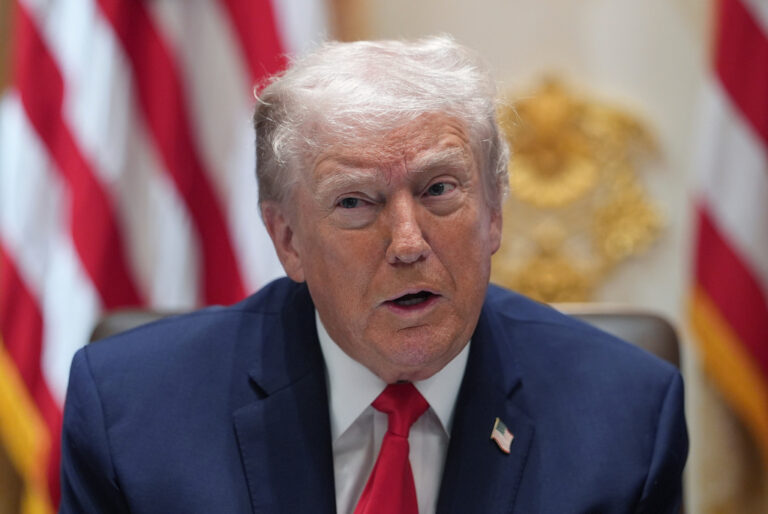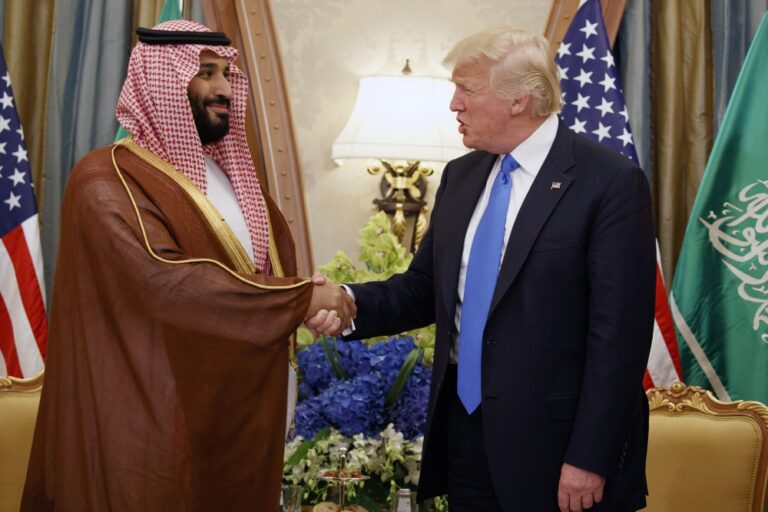British Prime Minister Boris Johnson has said a lot of nice things about Donald Trump over the years, from expressing admiration for the U.S. president to suggesting he might be worthy of the Nobel Peace Prize.
But after a mob of Trump supporters invaded the U.S. Capitol on Jan. 6, Johnson has changed his tune.
Trump, he said, had encouraged the violent insurrection, had disputed the result of a “free and fair election,” and was “completely wrong.”
It was a dramatic pivot for someone who has often been compared to Trump and refrained for years from openly criticizing him. Other world leaders also have faced dilemmas in dealing with the volatile and unpredictable president who trashed international agreements and institutions with abandon. But Johnson’s critics say his years of flattering — and, some say, imitating — Trump have harmed Britain’s international authority and poisoned its political culture.
Leslie Vinjamuri, director of the U.S. and the Americas program at the Chatham House think tank, said the issue of how to deal with Trump has been “the biggest question in in Western diplomacy for the past four years.”
“And I would say that the U.K. was on the wrong side of it,” she said.
Johnson is not the only Western leader who sought to befriend, persuade or placate Trump. French President Emmanuel Macron had an early bromance with the U.S. president, inviting Trump to Paris in 2017 for a Bastille Day military parade and dinner at the Eiffel Tower. Johnson’s predecessor, Theresa May, visited the White House just days after Trump’s inauguration and was photographed holding the president’s hand.
Both relationships soon turned sour, but Johnson was more successful in keeping on the good side of a president who praised him, ungrammatically, as “Britain Trump.”
“The dirty open secret of Europe during the Trump era was that everyone thought he was a menace,” said Brian Klaas, associate professor of global politics at University College London. “It’s just that Boris thought he was a menace who could potentially serve his own interests.”
Johnson supporters argue that he had no choice but to woo the leader of the U.K.’s most important ally — especially as Britain left the European Union and sought a key trade deal with Washington.
Johnson did try to change Trump’s course, attempting unsuccessfully to coax him back into the Iran nuclear deal. He also initially resisted U.S. pressure to ban the Chinese technology company Huawei from Britain’s 5G telecommunications network —- although he eventually caved in. Meanwhile, the coveted U.K.-U.S. trade deal has yet to emerge.
Critics say Johnson took his courting of Trump too far, and got little in return.
Emily Thornberry, a senior lawmaker for the opposition Labour Party, said the Conservative government’s indulgent attitude to Trump had been “humiliating and unnecessary.”
“We did everything that we could in order to charm him,” she told The Associated Press. “There was no charming this man. … He was a bully and the way to deal with bullies is to stand up to them.
“It was wrong in principle. It didn’t forward our interests in any way, and it gave some sort of credibility to Donald Trump that he didn’t deserve,” she said.
Like Trump, Johnson has engaged in populist stunts, exaggerated promises and, at times, racist and inflammatory language. But on most big policy issues, Johnson is closer to President-elect Joe Biden than to Trump. Johnson, leader of Britain’s Conservative party, believes in international alliances such as NATO and thinks the fight against climate change should be a government a priority.
Some U.K. politicians and officials are concerned that the government’s relationship with Trump, who was impeached Wednesday by the U.S. House of Representatives for a historic second time, could hurt it with Biden’s new administration.
Biden mistrusts Johnson, who once insulted President Barack Obama by saying the “half-Kenyan” leader had an ancestral dislike of Britain. Biden criticized Johnson in the fall when the British leader threatened to breach an international Brexit treaty that he himself had signed.
Kim Darroch, who lost his job as U.K. ambassador in Washington after his candid confidential comments about Trump were leaked in 2019, wrote in the Financial Times that “there will be a price to pay, somewhere down the track, for our obsequiousness to Mr. Biden’s predecessor.”
The change in American leadership is also awkward for Israeli Prime Minister Benjamin Netanyahu, a staunch ally who didn’t mention Trump’s name when he condemned the Capitol riot.
Netanyahu’s reluctance to criticize his good friend was not surprising. In the past four years, Trump has showered Netanyahu with diplomatic gifts, from recognizing the contested city of Jerusalem as Israel’s capital to delivering a series of diplomatic agreements between Israel and Arab countries.
Israel’s figurehead president, Reuven Rivlin, implored citizens to learn lessons from the U.S. turmoil and remember that democracy “is not to be taken for granted.”
“The right to vote, the voice of the citizen exercising their democratic rights, alongside the strength of the judiciary and maintaining the rule of law, must be principles shared by us all,” he said.
In Britain, there are also warnings that authoritarianism and “post-truth” provocation have seeped into the country’s political bloodstream.
Neil O’Brien, a Conservative lawmaker who debunks anti-science posts online, said Britons would be wrong to see events in the Capitol as a uniquely American crisis.
He said Britain, too, has conspiracy theorists who have clashed with police at demonstrations against coronavirus lockdowns — and politicians who “flirt with them to gain clicks and exploit their energy.”
O’Brien wrote that the mayhem in Washington “happened not just because of one man, but because people in positions of power made short-termist decisions to feed the beast, and play along.”
“Don’t think it couldn’t happen here,” he said.
(AP)












One Response
Bibi dealt well with Muslim loving Obama and Biden is less a Muslim than Obama, so I don’t see any problem for Bibi except for getting re elected…..